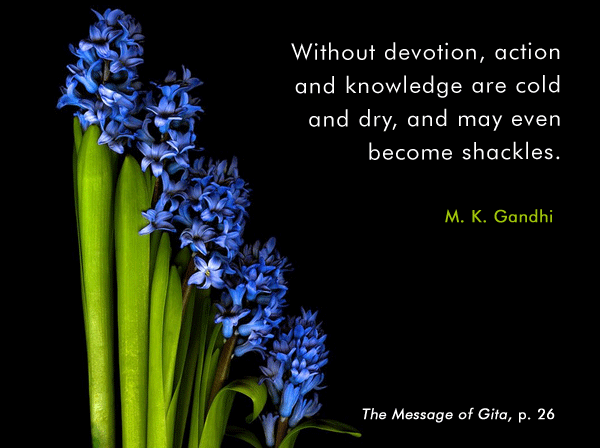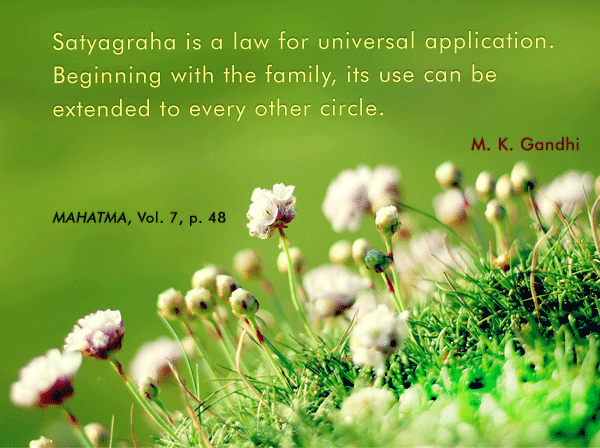Posts
Showing posts from January, 2015
PM Narendra Modi with US President Barack Obama on Ceremonial Function a...
- Get link
- X
- Other Apps
125. PASSION FOR UNITY :
- Get link
- X
- Other Apps

The Kheda campaign was launched while the deadly war in Europe was still going on. Now a crisis had arrived, and the Viceroy had invited various leaders to a war conference in Delhi. I had also been urged to attend the conference. I have already referred to the cordial relations between Lord Chelmsford, the Viceroy, and myself. In response to the invitation I went to Delhi. I had, however, objections to taking part in the conference, the principal one being the exclusion from it of leaders like the Ali Brothers. They were then in jail. I had met them. Everyone had spoken highly of their much services and their courage. I had not then come in close touch with Hakim Saheb, but Principal Rudra and Dinabandhu Andrews had told me a deal in his praise. I had met Mr. Shuaib Qureshi and Mr. Khwaja at the Muslim League in Calcutta. I had also come in contact with Drs. Ansari and Abdur Rahman. I was seeking the friendship of good Musalmans. and was eager to understand the Musalman mind...
124. END OF KHEDA SATYAGRAHA :
- Get link
- X
- Other Apps

The campaign came to an unexpected end. It was clear that the people were exhausted, and I hesitated to let the unbending be driven to utter ruin. I was casting about for some graceful way of terminating the struggle which would be acceptable to a Satyagrahi. Such a one appeared quite unexpectedly. The Mamlatdar of the Nadiad Taluka sent me word that, if well-to-do Patidars paid up, the poorer ones would be granted suspension. I asked for a written undertaking to that effect, which was given. But as a Mamlatdar could be responsible only for his Taluka, I inquired of the Collector, who alone could give an undertaking in respect of the whole district, whether the Mamlatdar's undertaking was true for the whole district. He replied that orders declaring suspension in terms of the Mamlatdar's letter had been already issued. I was not aware of it, but if it was a fact, the people's pledge had been fulfilled. The pledge, it will be remembered, had the same things for its obj...
123. 'THE ONION THIEF' :
- Get link
- X
- Other Apps

Champaran being in a far away corner of India, and the press having been kept out of the campaign, it did not attract visitors from outside. Not so with the Kheda campaign, of which the happenings were reported in the press from day to day. The Gujaratis were deeply interested in the fight, which was to them a novel experiment. They were ready to pour forth their riches for the success of the cause. It was not easy for them to see that Satyagraha could not be conducted simply by means of money. Money is the thing that it least needs. In spite of my remonstrance, the Bombay merchants sent us more money than necessary, so that we had some balance left at the end of the campaign. At the same time the Satyagrahi volunteers had to learn the new lesson of simplicity. I cannot say that they imbibed it fully, but they considerably changed their ways of life. For the Patidar farmers, too, the fight was quite a new thing. We had, therefore, to go about from village to village ex...
122. THE KHEDA SATYAGRAHA :
- Get link
- X
- Other Apps

No breathing time was, however, in store for me. Hardly was the Ahmedabad mill-hands' strike over, when I had to plunge into the Kheda Satyagraha struggle. A condition approaching famine had arisen in the Kheda district owing to a widespread failure of crops, and the Patidars of Kheda were considering the question of getting the revenue assessment for the year suspended. Sjt. Amritlal Thakkar had already inquired into and reported on the situation and personally discussed the question with the Commissioner, before I gave definite advice to the cultivators. Sjts. Mohanlal Pandya and Shankarlal Parikh had also thrown themselves into the fight, and had set up an agitation in the Bombay Legislative Council through Sjt. Vithalbhai Patel and the late Sir Gokuldas Kahandas Parekh. More than one deputation had waited upon the Governor in that connection. I was at this President of the Gujarat Sabha. The Sabha sent petitions and telegrams to the Government and even patient...
121. THE FAST :
- Get link
- X
- Other Apps

For the first two weeks the mill-hands exhibited great courage and self-restraint and daily held monster meetings. On these occasions I used to remind them of their pledge, and they would shout back to me the assurance that they would rather die than break their word. But at last they began to show signs of flagging. Just as physical weakness in men manifests itself in irascibility, their attitude towards the blacklegs became more and more menacing as the strike seemed to weaken, and I began to fear an outbreak of rowdyism on their part. The attendance at their daily meetings also began to dwindle by degrees, and despondency and despair were writ large on the faces of those who did attend. Finally the information was brought to me that the strikers had begun to totter. I felt deeply troubled and set to thinking furiously as to what my duty was in the circumstances. I had had experience of a gigantic strike in South Africa, but the situation that confronted me here was different...
120. A PEEP INTO THE ASHRAM :
- Get link
- X
- Other Apps
.jpg)
Before I proceed to describe the progress of the labour dispute it is essential to have a peep into the Ashram. All the while I was in Champaran the Ashram was never out of my mind, and occasionally I paid it flying visits. At that time the Ashram was in Kochrab, a small village near Ahmedabad. Plague broke out in this village, and I saw evident danger to the safety of the Ashram children. It was impossible to keep ourselves immune from the effects of the surrounding insanitation, however scrupulously we might observe the rules of cleanliness within the Ashram walls. We were not then equal either to getting the Kochrab people to observe these rules nor to serving the village otherwise. Our ideal was to have the Ashram at a safe distance both from town and village, and yet at a manageable distance from either. And we were determined, some day, to settle on ground of our own. The plague, I felt, was sufficient notice to quit Kochrab. Sjt. Punjabhai Hirachand, a mercha...
119. IN TOUCH WITH LABOUR :
- Get link
- X
- Other Apps

Whilst I was yet winding up my work on the Committee, I received a letter from Sjts. Mohanlal Pandya and Shankarlal Parikh telling me of the failure of crops in the Kheda district, and asking me to guide the peasants, who were unable to pay the assessment. I had not the inclination, the ability or the courage to advise without an inquiry on the spot. At the same time there came a letter from Shrimati Anasuyabai about the condition of labour in Ahmedabad, Wages were low, the labourers had long been agitating for an increment, and I had a desire to guide them if I could. But I had not the confidence to direct even this comparatively small affair from that long distance. So I seized the first opportunity to go to Ahmedabad. I had hoped that I should be able to finish both these matters quickly and get back to Champaran to supervise the constructive work that had been inaugurated there. But things did not move as swiftly as I had wished, and I was unable to return to Champaran...
118. WHEN A GOVERNOR IS GOOD :
- Get link
- X
- Other Apps

Whilst on the one hand social service work of the kind I have described in the foregoing chapters was being carried out, on the other the work of recording statements of the ryots' grievances was progressing apace. Thousands of such statements were taken, and they could not but have their effect. The ever growing number of ryots coming to make their statements increased the planters' wrath, and they moved heaven and earth to counteract my inquiry. One day I received a letter from the Bihar Government to the following effect: 'Your inquiry had been sufficiently prolonged; should you not now bring it to an end and leave Bihar?' The letter was couched in polite language, but its meaning was obvious. I wrote in reply that the inquiry was bound to be prolonged, and unless and until it resulted in bringing relief to the people, I had no intention of leaving Bihar, I pointed out that it was open to Government to terminate my inquiry by accepting the ryots...
117. PENETRATING THE VILLAGES :
- Get link
- X
- Other Apps

As far as was possible we placed each school in charge of one man and one woman. These volunteers had to look after medical relief and sanitation. The womenfolk had to be approached through women. Medical relief was a very simple affair. Castor oil, quinine and sulphur ointment were the only drugs provided to the volunteers. If the patient showed a furred tongue or complained of constipation, castor oil was administered, in case of fever quinine was given after an opening dose of castor oil, and the sulphur ointment was applied in case of boils and itch after thoroughly washing the affected parts. No patient was permitted to take home any medicine. Wherever there was some complication Dr. Dev used to visit each centre on certain fixed days in the week. Quite a number of people availed themselves of this simple relief. This plan of work will not seem strange when it is remembered that the prevailing ailments were few and amenable to simple treatment, by no means requiring...
116. COMPANIONS :
- Get link
- X
- Other Apps

Brajkishorebabu and Rajendrababu were a matchless pair. Their devotion made it impossible for me to take a single step without their help. Their disciples, or their companions Shambhaubabu, Anugrahababu, Dharanibabu, Ramnavmibabu and other vakils were always with us. Vindhyababu and Janakdharibabu also came and helped us now and then. All these were Biharis. Their principal work was to take down the ryots' statements. Professor Kripalani could not but cast in his lot with us. Though a Sindhi he was more Bihari than a born Bihari. I have seen only a few workers capable of merging themselves in the province of their adoption. Kripalani is one of those few. He made it impossible for anyone to feel that he belonged to a different province. He was my gatekeper in chief. For the time being he made it the end and aim of his life to save me from darshan seekers. He warded off people, calling to his aid now his unfailing humour, now his non-violent threats. At nightfall he would...
115. METHODS OF WORK :
- Get link
- X
- Other Apps

To give a full account of the Champaran inquiry would be to narrate the histroy, for the period, of the Champaran ryot, which is out of the question in these chapters. The Champaran inquiry was a bold experiment with Truth and Ahimsa, and I am giving week by week only what occurs to me as worth giving from that point of view. For more details the reader must turn to Sjt. Rajendra Prasad's history of the Champaran Satyagraha in Hindi, of which, I am told, an English edition is now in the press. But to return to the subject matter of this chapter. The inquiry could not be conducted in Gorakhbabu's house, without practically asking poor Gorakhbabu to vacate it. And the people of Motihari had not yet shed their fear to the extent of renting a house to us. However, Brajkishorebabu tactfully secured one with considerable open space about it, and we now removed there. It was not quite possible to carry on the work without money. It had not been the practice hitherto t...
114. CASE WITHDRAWN :
- Get link
- X
- Other Apps

The trial began, The Government pleader, the Magistrate and other officials were on tenterhooks. They were at a loss to know what to do. The Government pleader was pressing the Magistrate to postpone the case. But I interfered and requested the Magistrate not to postpone the case, as I wanted to plead guilty to having disobeyed the order to leave Champaran and read a brief statement as follows: 'With the permission of the Court I would like to make a brief statement showing why I have taken the very serious step of seemingly disobeying the order passed under section 144 of Cr. P.C. In my humble opinion it is a question of difference of opinion between the Local Administration and myself. I have entered the country with motives of rendering humanitarian and national service. I have done so in response to a pressing invitation to come and help the ryots. Who urge they are not being fairly treated by the indigo planters. I could not render any help without studying the pro...
113. FACE TO FACE WITH AHIMSA :
- Get link
- X
- Other Apps

My object was to inquire into the condition of the Champaran agriculturists and understand their grievances against the indigo planters. For this purpose it was necessary that I should meet thousands of the ryots. But I deemed it essential, before starting on my inquiry, to know the planters' side of the case and see the Commissioner of the Division. I sought and was granted appointments with both. The Secretary of the Planters' Association told me plainly that I was an outsider and that I had no business to come between the planters and their tenants, but if I had any representation to make, I might submit it in writing. I politely told him that I did not regard myself as an outsider, and that I had every right to inquire into the condition of the tenants if they desired me to do so. The acquainted my co-workers with all this, and told them that there was a likelihood of Government stopping me from proceeding further, and that I might have to go to jail earlier ...
112. THE GENTLE BIHARI :
- Get link
- X
- Other Apps

I knew Maulana Mazharul Haq in London when he was studying for the bar, and when I met him at the Bombay Congress in 1915 the year in which he was President of the Muslim League he had renewed the acquaintance, and extended me an invitation to stay with him whenever I happened to go to Patna. I bethought myself of this invitation and sent him a note indicating the purpose of my visit. He immediately came in his car, and pressed me to accept his hospitality. I thanked him and requested him to guide me to my destination by the first available train, the railway guide being useless to an utter stranger like me. He had a talk with Rajkumar Shukla and suggested that I should first go to Muzaffarpur. There was a train for that place the same evening and he sent me off by it. Principal Kripalani was then in Muzaffarpur. I had known of him ever since my visit to Hyderabad. Dr. Choithram had told me of his great sacrifice, of his simple life, and of the Ashram that Dr. Choithram wa...